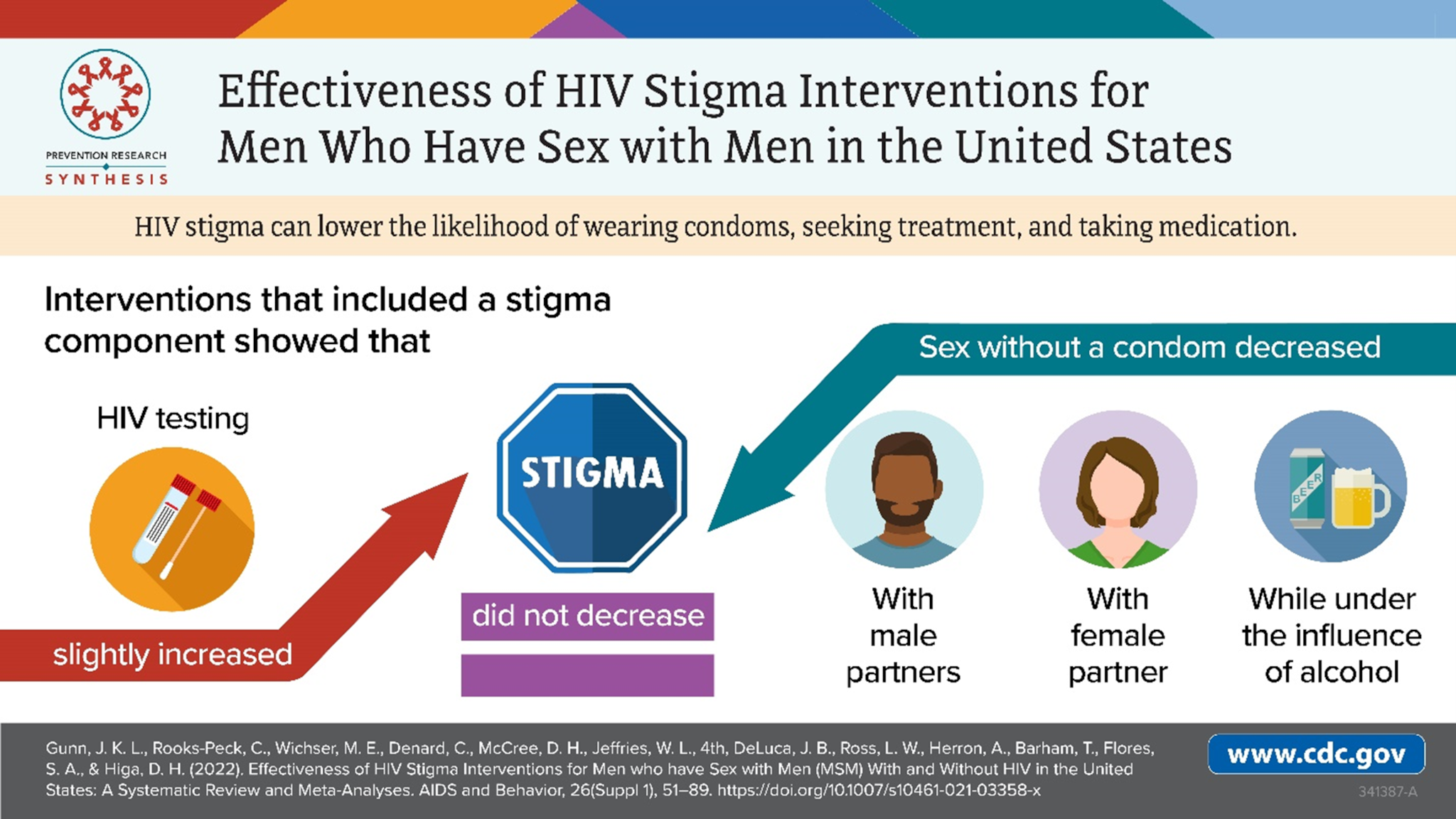Effectiveness of HIV Stigma Interventions for Men Who Have Sex with Men in the United States
Citation
Gunn, J. K. L., Rooks-Peck, C., Wichser, M. E., Denard, C., McCree, D. H., Jeffries, W. L., 4th, DeLuca, J. B., Ross, L. W., Herron, A., Barham, T., Flores, S. A., & Higa, D. H. (2022). Effectiveness of HIV stigma interventions for men who have sex with men (MSM) with and without HIV in the United States: A systematic review and meta-analyses. AIDS and Behavior, 26(Suppl 1), 51–89. https://doi.org/10.1007/s10461-021-03358-x
Visual Abstract

Background
In the United States, men who have sex with men (MSM) are unequally affected by HIV. HIV stigma can lower the likelihood of wearing condoms, seeking treatment, and taking medication.
Questions addressed in the review
- What are the characteristics of HIV stigma interventions for MSM?
- Do the interventions affect HIV-related outcomes?
Search date
The search was conducted in 2017 and repeated in 2019. The search covered the years 2000-2019.
Study characteristics
Twenty-six studies were included in the review. Most of the studies were randomized control trials in which the people participating were assigned to different programs randomly.
Key results
- Sex without a condom decreased
- With male partners
- With female partner
- While under the influence of alcohol
- HIV testing slightly increased
- Stigma did not decrease
Quality of the evidence
Most studies did not report enough information to assess the risk of bias. Of the remaining studies, 4 had a high risk, 1 had a moderate risk, and 2 had a low risk.
Study funding source
This study was funded by the Centers for Disease Control and Prevention.
Related Resources